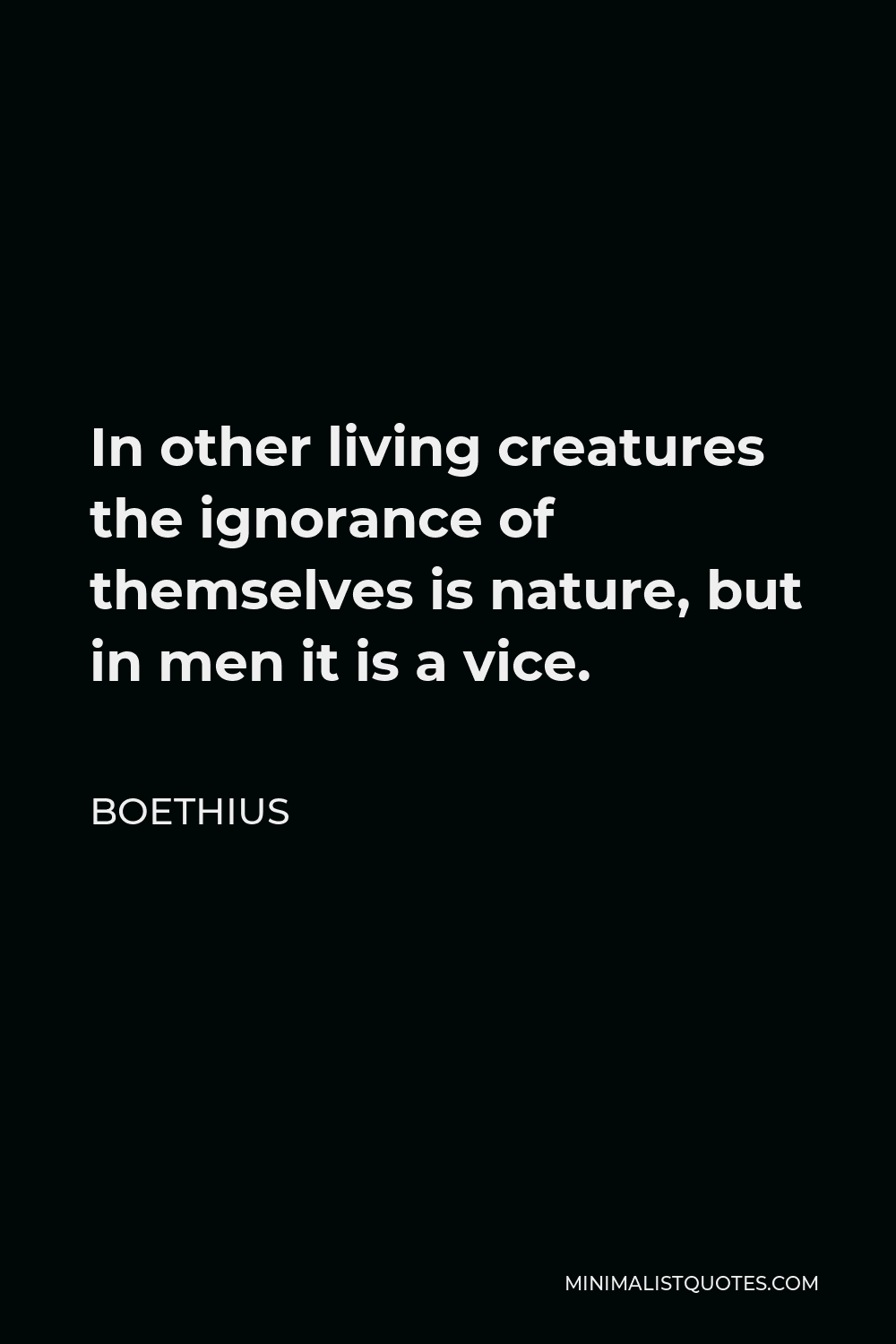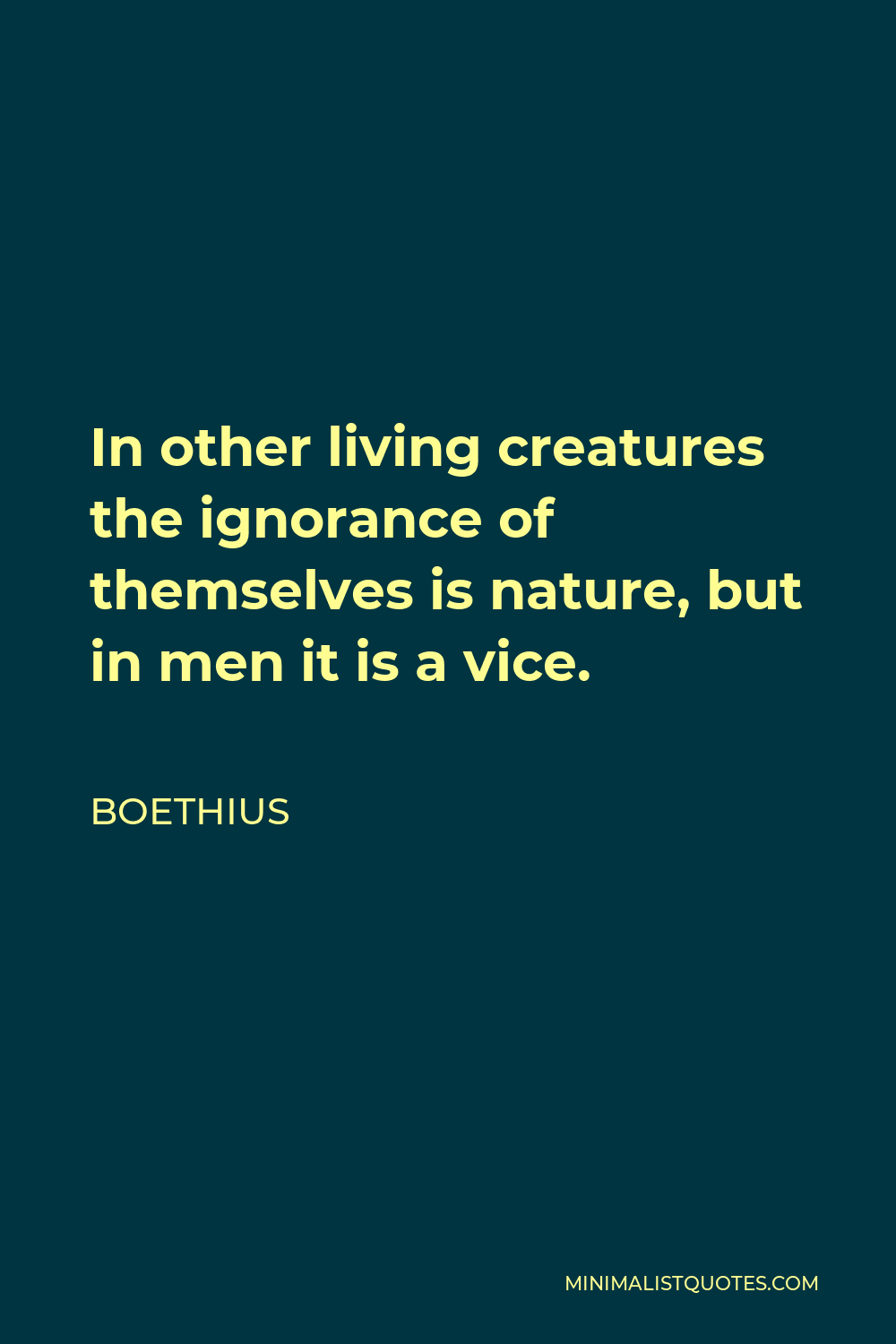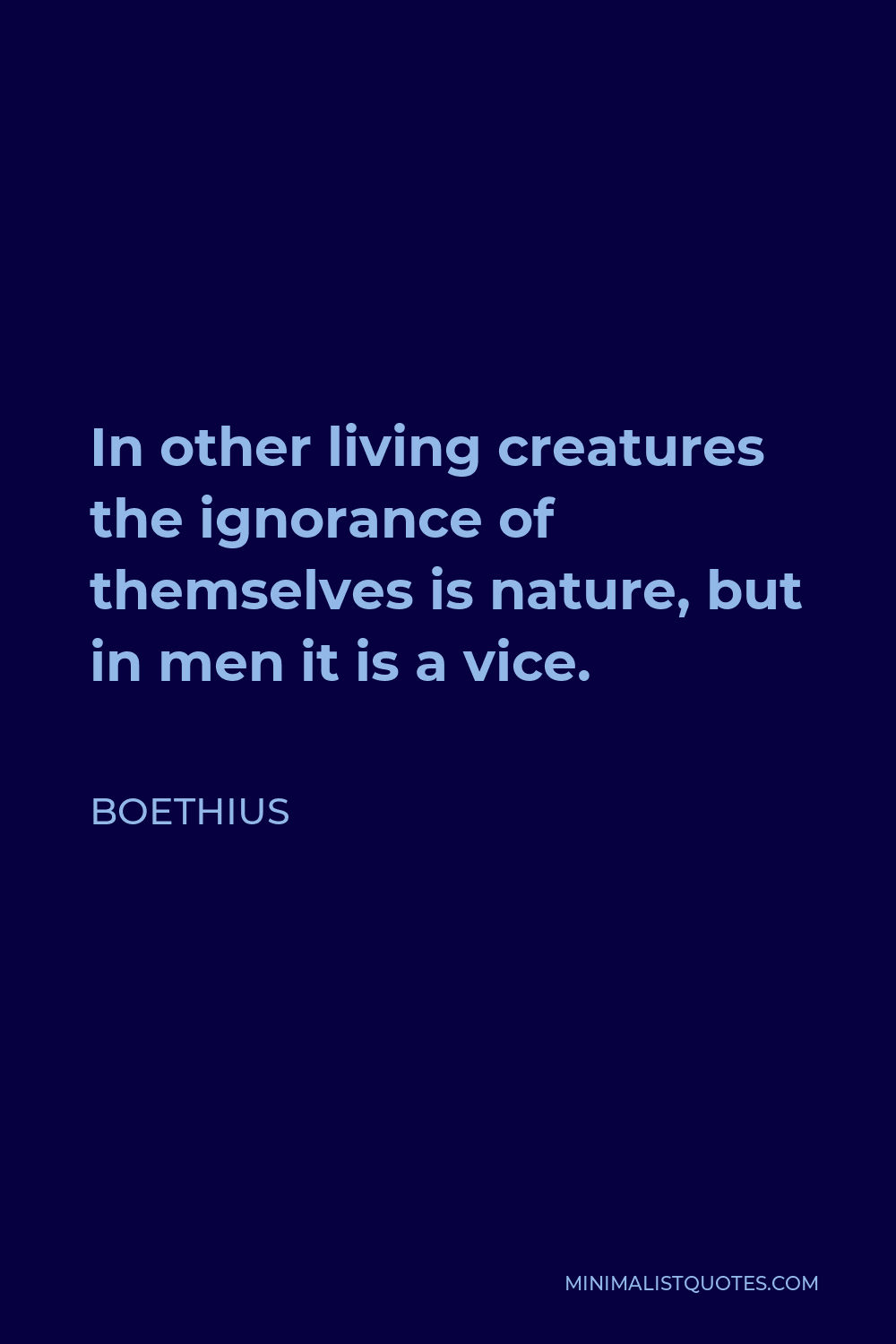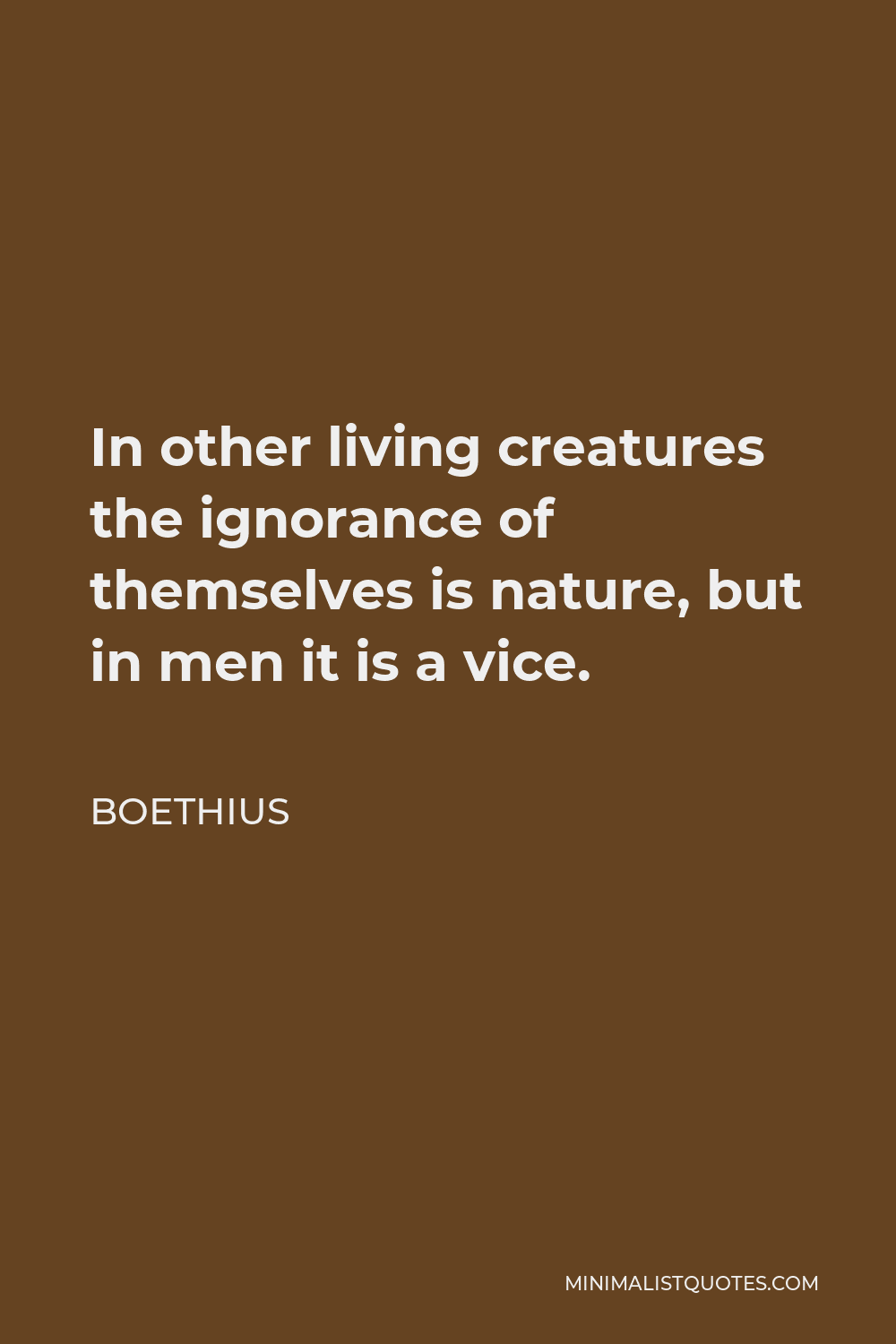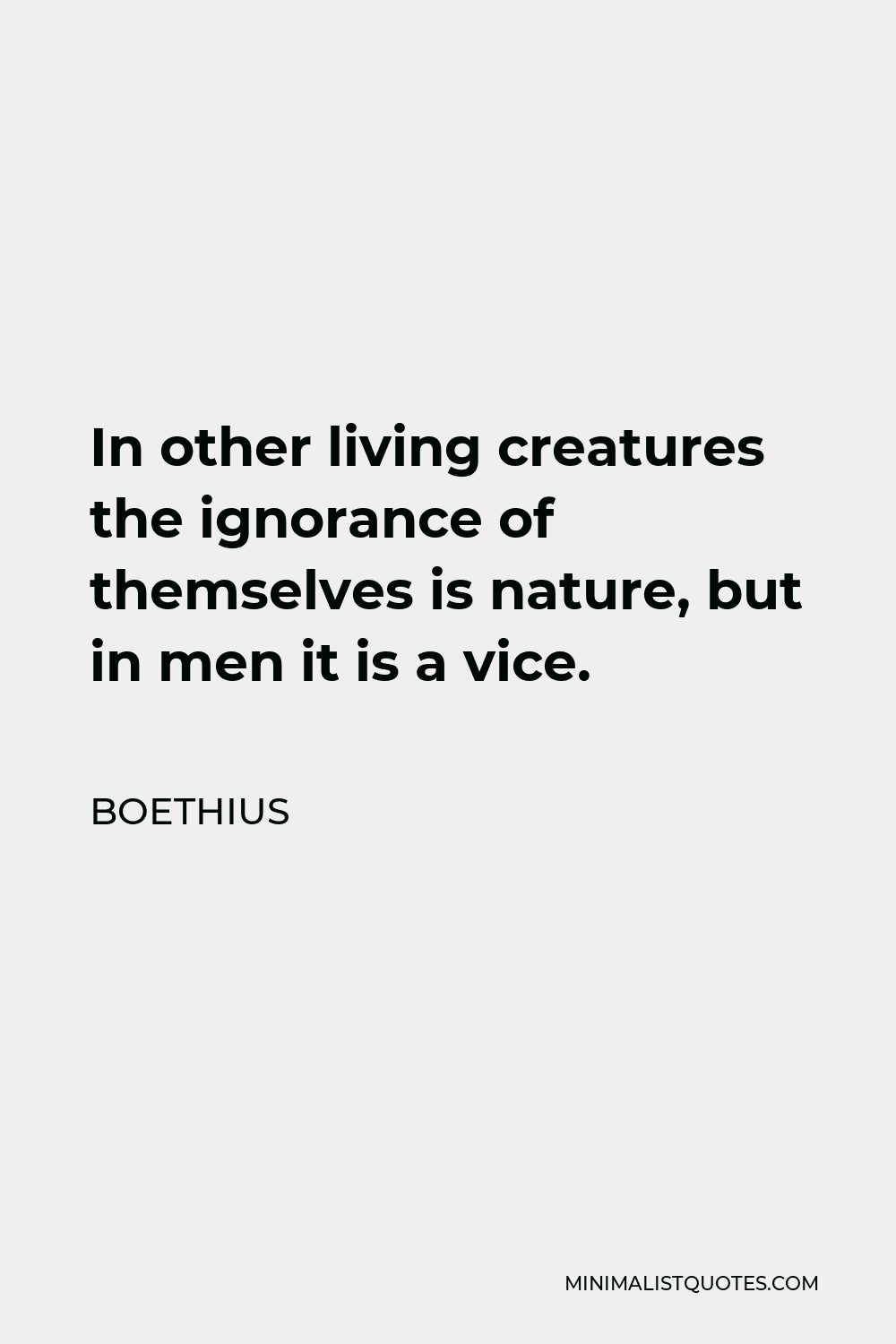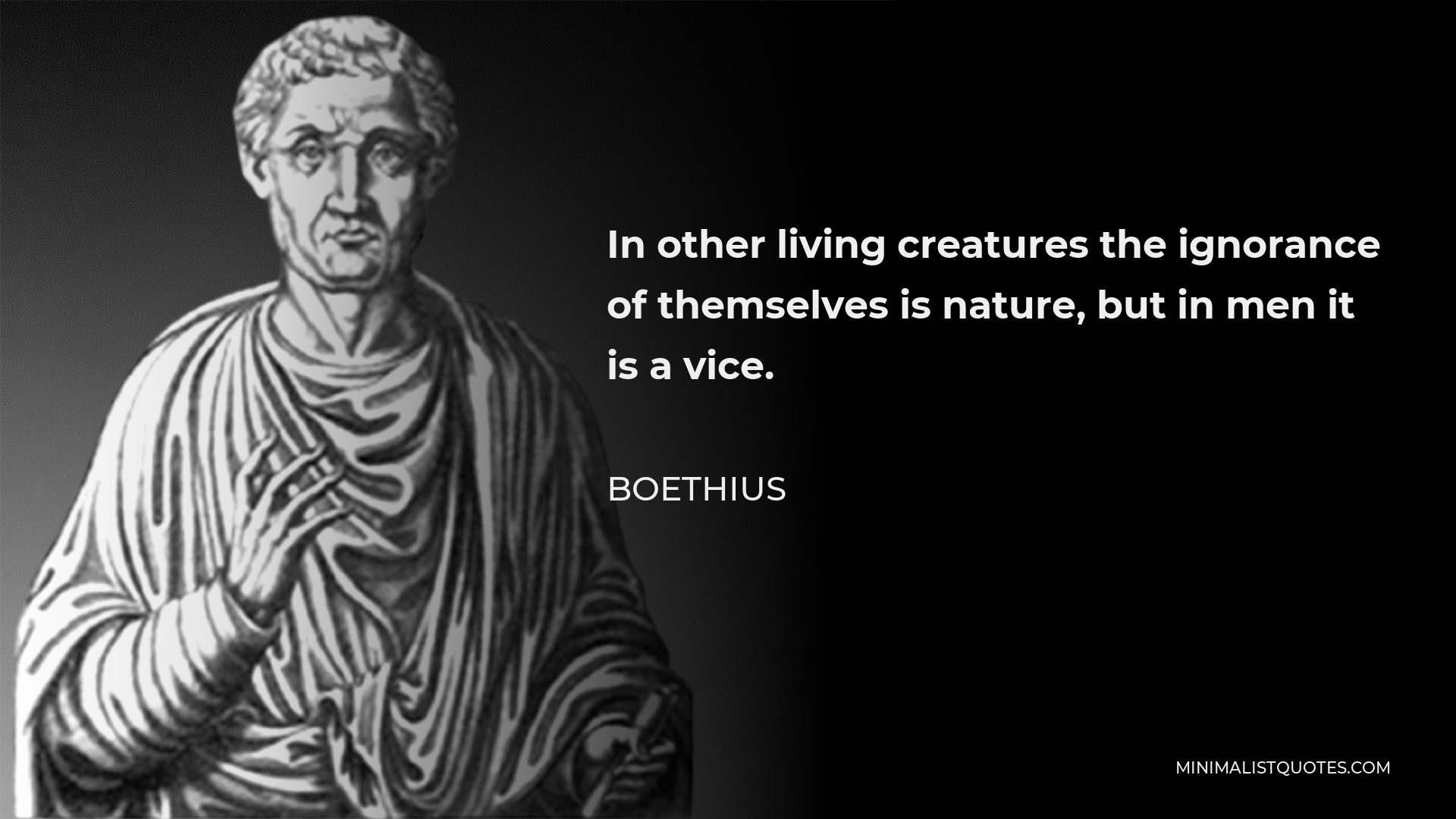Good men seek it by the natural means of the virtues; evil men, however, try to achieve the same goal by a variety of concupiscences, and that is surely an unnatural way of seeking the good. Don’t you agree?
BOETHIUSIn other living creatures the ignorance of themselves is nature, but in men it is a vice.
More Boethius Quotes
-





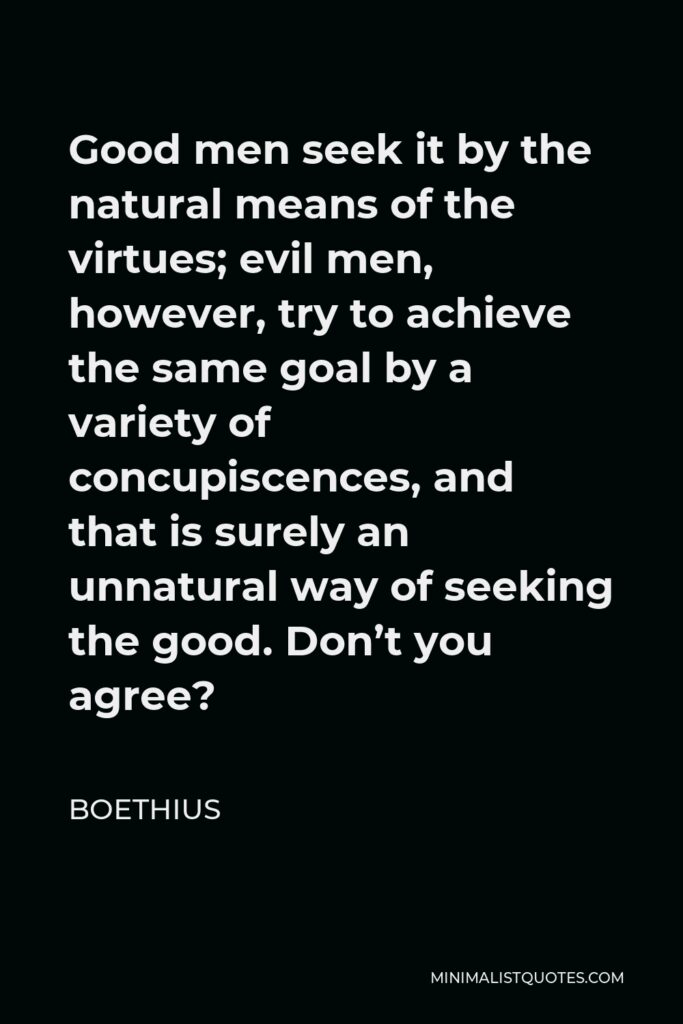

-







Every man must be content with that glory which he may have at home.
BOETHIUS -





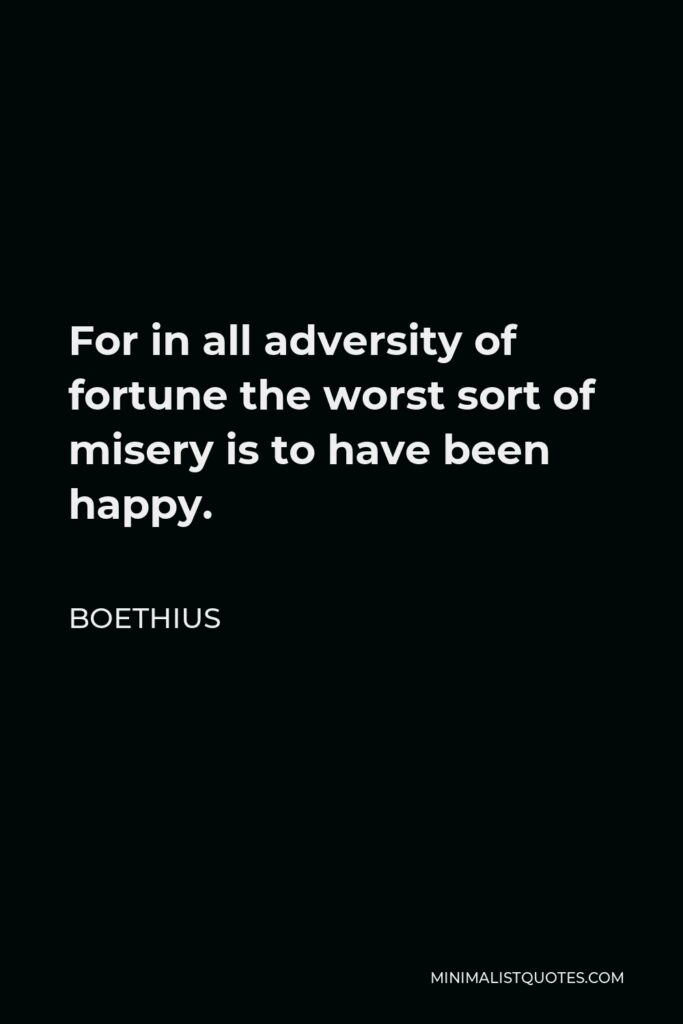

For in all adversity of fortune the worst sort of misery is to have been happy.
BOETHIUS -





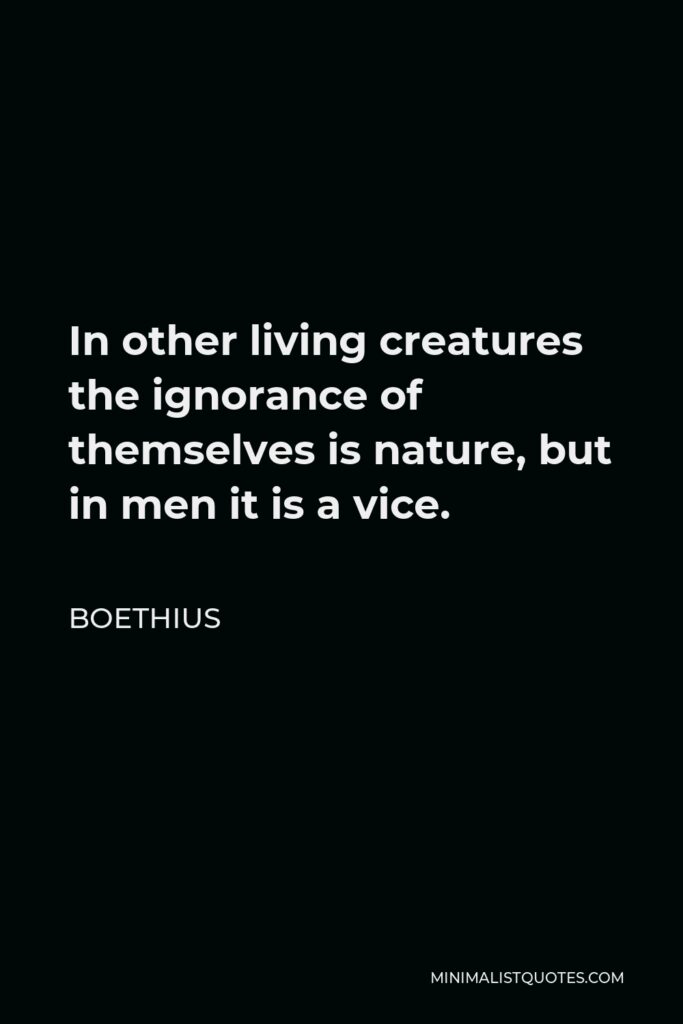

In other living creatures the ignorance of themselves is nature, but in men it is a vice.
BOETHIUS -







A man content to go to heaven alone will never go to heaven.
BOETHIUS -





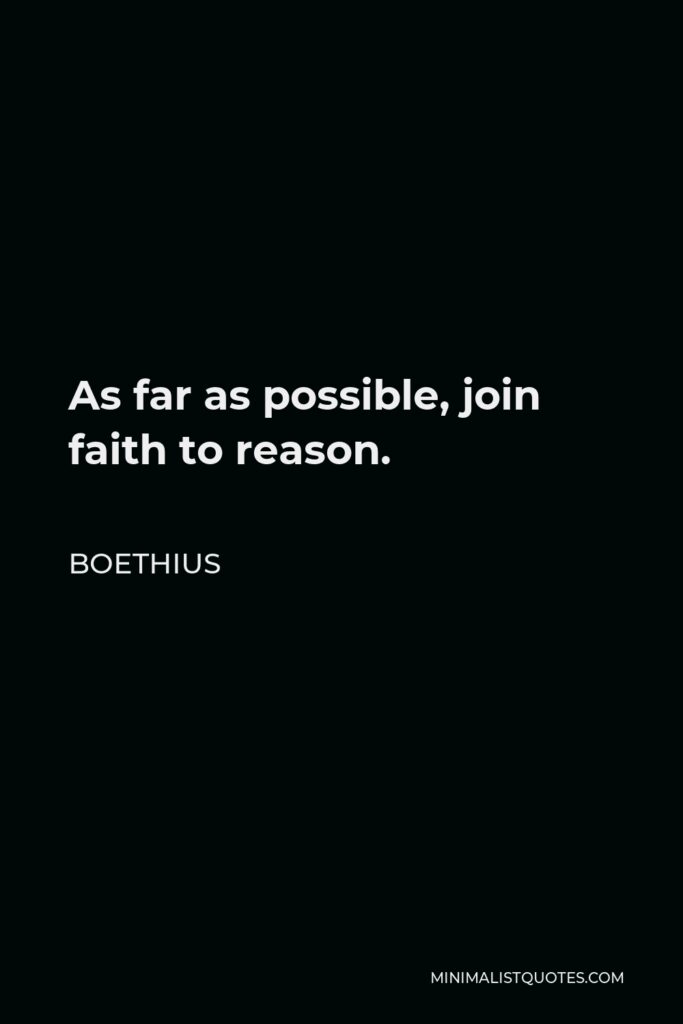

As far as possible, join faith to reason.
BOETHIUS -





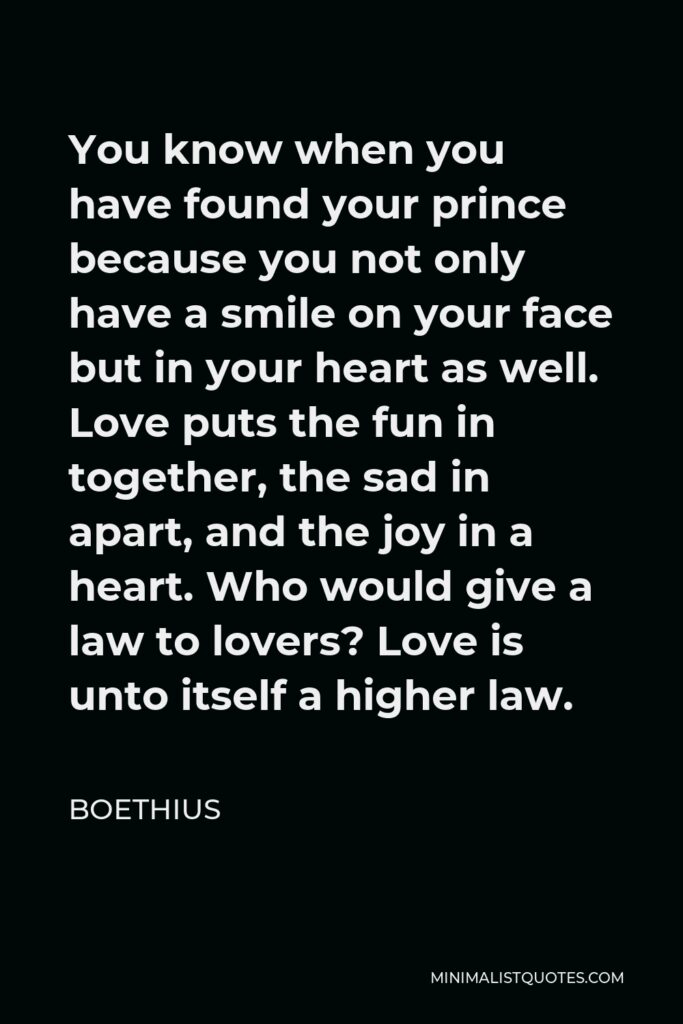

You know when you have found your prince because you not only have a smile on your face but in your heart as well. Love puts the fun in together, the sad in apart, and the joy in a heart. Who would give a law to lovers? Love is unto itself a higher law.
BOETHIUS -





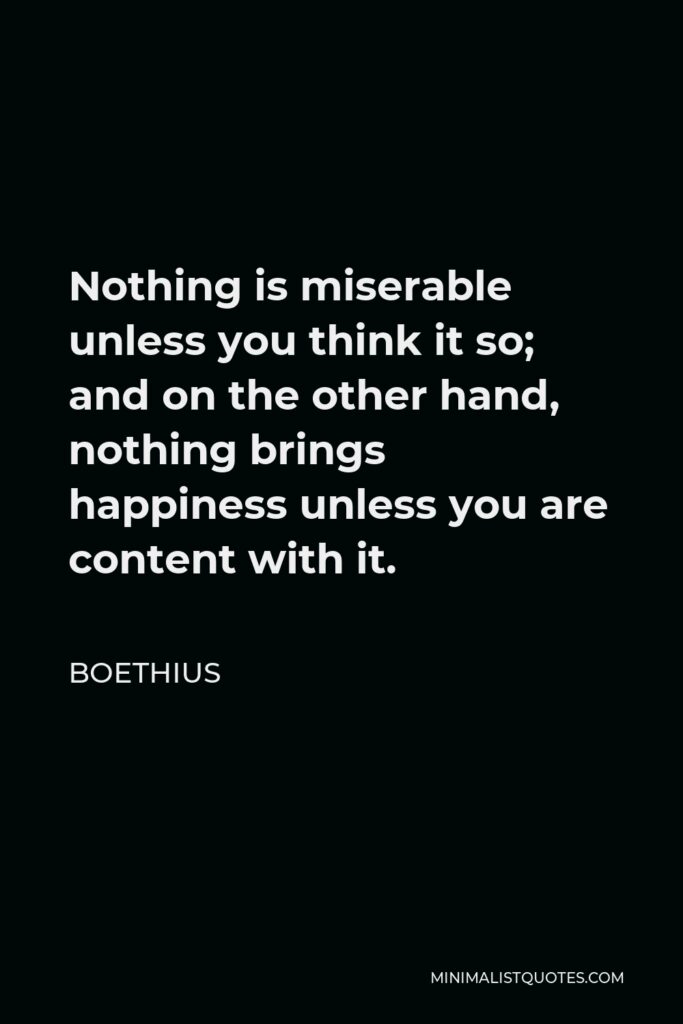

Nothing is miserable unless you think it so; and on the other hand, nothing brings happiness unless you are content with it.
BOETHIUS -







Whose happiness is so firmly established that he has no quarrel from any side with his estate of life?
BOETHIUS -







He who is virtuous is wise; and he who is wise is good; and he who is good is happy.
BOETHIUS -





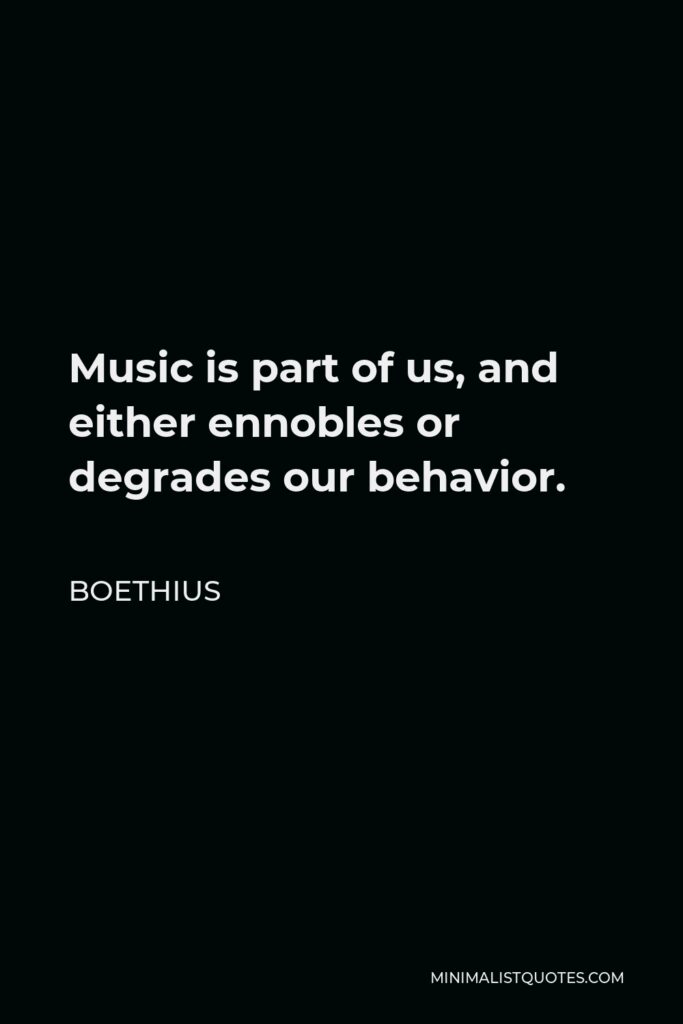

Music is part of us, and either ennobles or degrades our behavior.
BOETHIUS -







Nothing is miserable but what is thought so, and contrariwise, every estate is happy if he that bears it be content.
BOETHIUS -





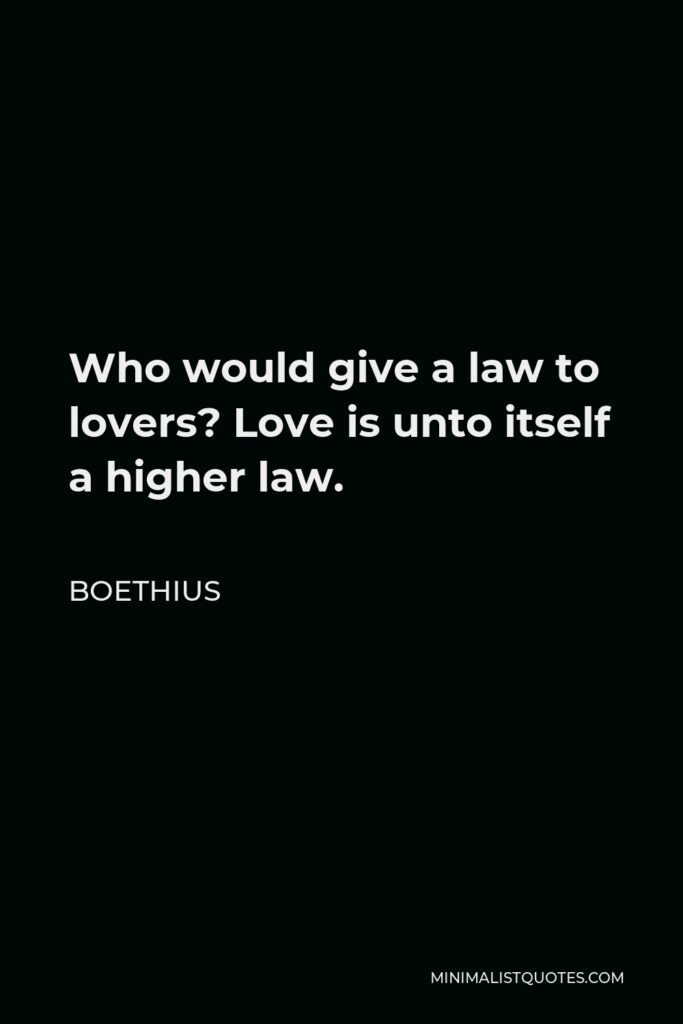

Who would give a law to lovers? Love is unto itself a higher law.
BOETHIUS -





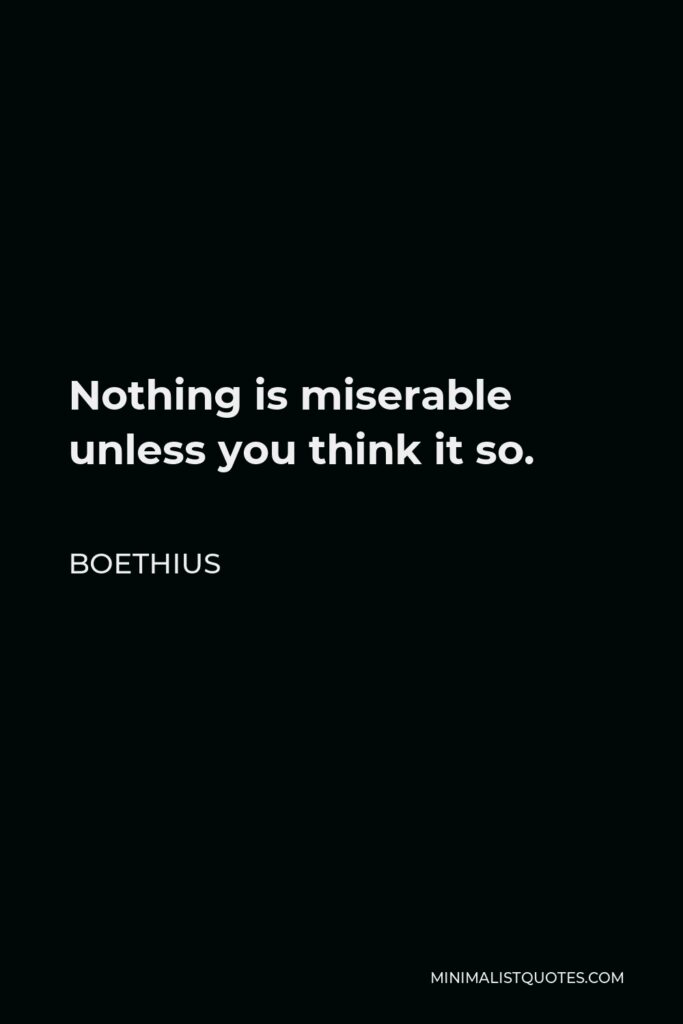

Nothing is miserable unless you think it so.
BOETHIUS -





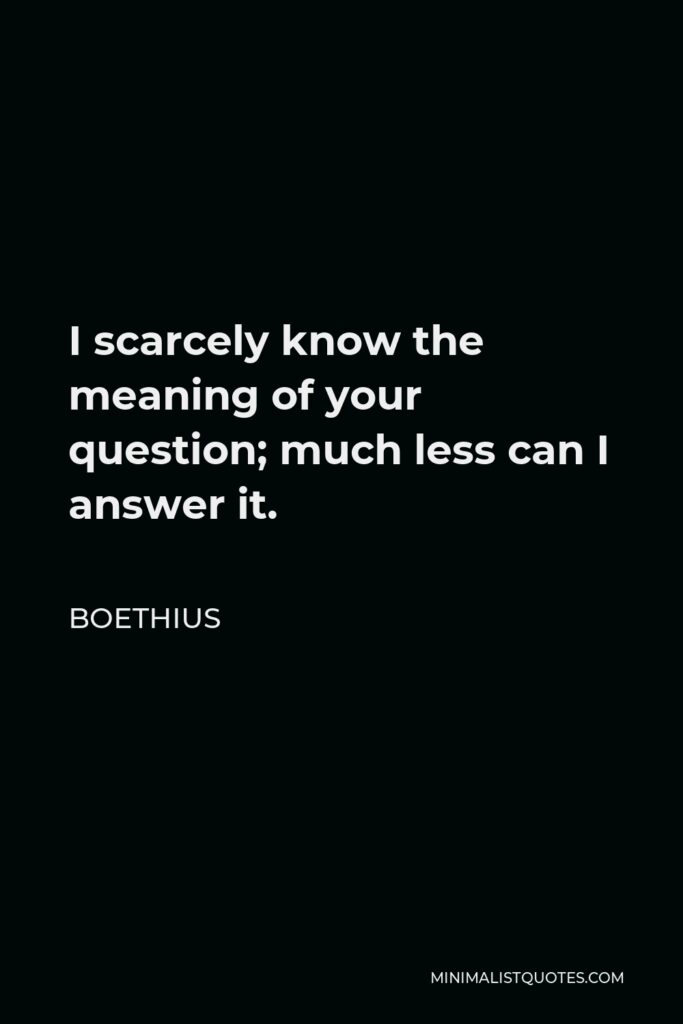

I scarcely know the meaning of your question; much less can I answer it.
BOETHIUS -







All fortune is good fortune; for it either rewards, disciplines, amends, or punishes, and so is either useful or just.
BOETHIUS
